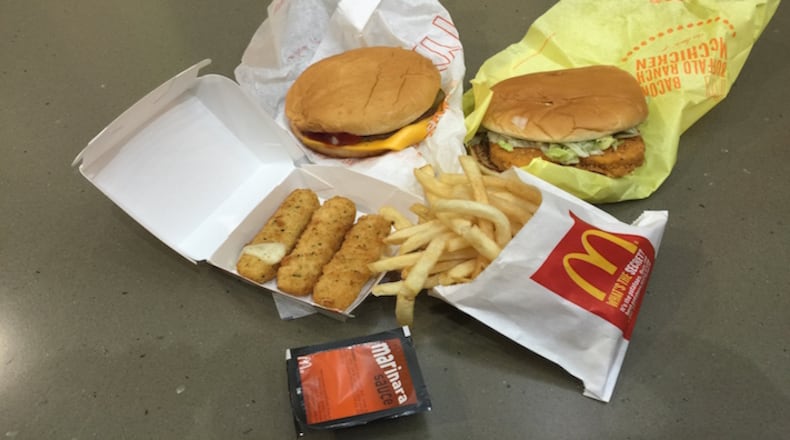Follow Candice Choi at www.twitter.com/candicechoi
Fast food is becoming a dirty term.
As smaller players challenge fast-food chains like McDonald's and Burger King, they're fighting to set themselves apart by describing their food as "fast-casual," ''fine casual," ''fast crafted" and even "fan food." That's even though they follow the same basic format: People standing in a line to order and pay a cashier for their food.
The new phrases are being embraced as companies try to position their offerings as fresher or higher quality to distance further their menu items from the stigma that fast food is greasy, cheap and unhealthy.
Even traditional fast-food chains acknowledge they have an image problem. McDonald's Corp. has said it wants to transform into a "modern, progressive burger company." And Yum CEO Greg Creed has noted the need for the company's Taco Bell, KFC and Pizza Hut chains to redefine the meaning of fast food, which is seen as industrial and impersonal.
In the meantime, others are cooking up phrases to telegraph that they are anything but fast food.
Chipotle Mexican Grill Inc. and Panera Bread Co. are widely referred to in the industry as "fast casual" chains, a term meant to convey that they serve dishes that are in line with what people might find at a casual, sit-down restaurant. Shake Shack, the New York City-based burger chain, took it a step further last year when it declared itself to be "fine casual."
In a filing with the Securities and Exchange Commission, Shake Shack explained: "Fine casual couples the ease, value and convenience of fast casual concepts with the high standards of excellence in thoughtful ingredient sourcing, preparation, hospitality and quality grounded in fine dining."
Even Arby's, whose food has been mocked on The Daily Show by former host Jon Stewart, is trying to change its image and has started calling itself "fast crafted."
Chris Fuller, a spokesman for Arby's, said the chain came up with description after holding "Brand Camp" meetings with employees around the country in 2014. Workers were given cards with the names of restaurant chains, and told to lay them out in order, with "fast-food" representing one end and "fast casual" representing the other end. Arby's always fell somewhere in the middle, Fuller said.
As a result, he said the chain realized it offered the convenience of fast-food, but also offers "that made-for-your care" with its sandwiches.
When asked how he thought Stewart might react if he were still on The Daily Show, Fuller said: "I think he would come up with his own term, but I'm sure he would have some fun at our cost."
Arby's isn't alone, of course. Del Taco says it considers itself to be "QSR-plus," a reference to the industry term "quick service restaurant" that's used to refer to fast-food. And Dairy Queen's tag line is "Fan Food Not Fast Food."
Allen Adamson, founder of BrandSimple Consulting, said the trend shows the term fast-food has become the "death star" of the industry.
Adamson noted there was a time when the idea of getting food quickly was a unique concept, but that restaurants can no longer rely on speed alone to attract customers.
"Everything can be fast today. What you want to communicate is something more desirable," he said.
About the Author

